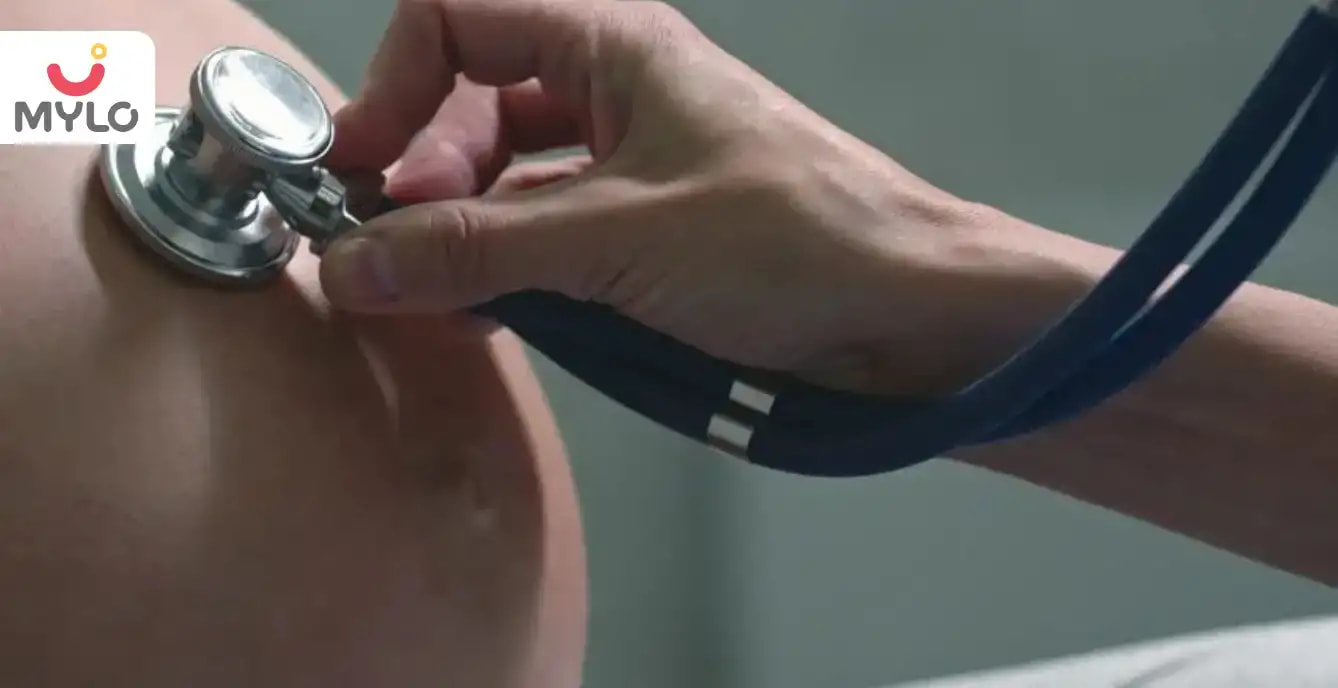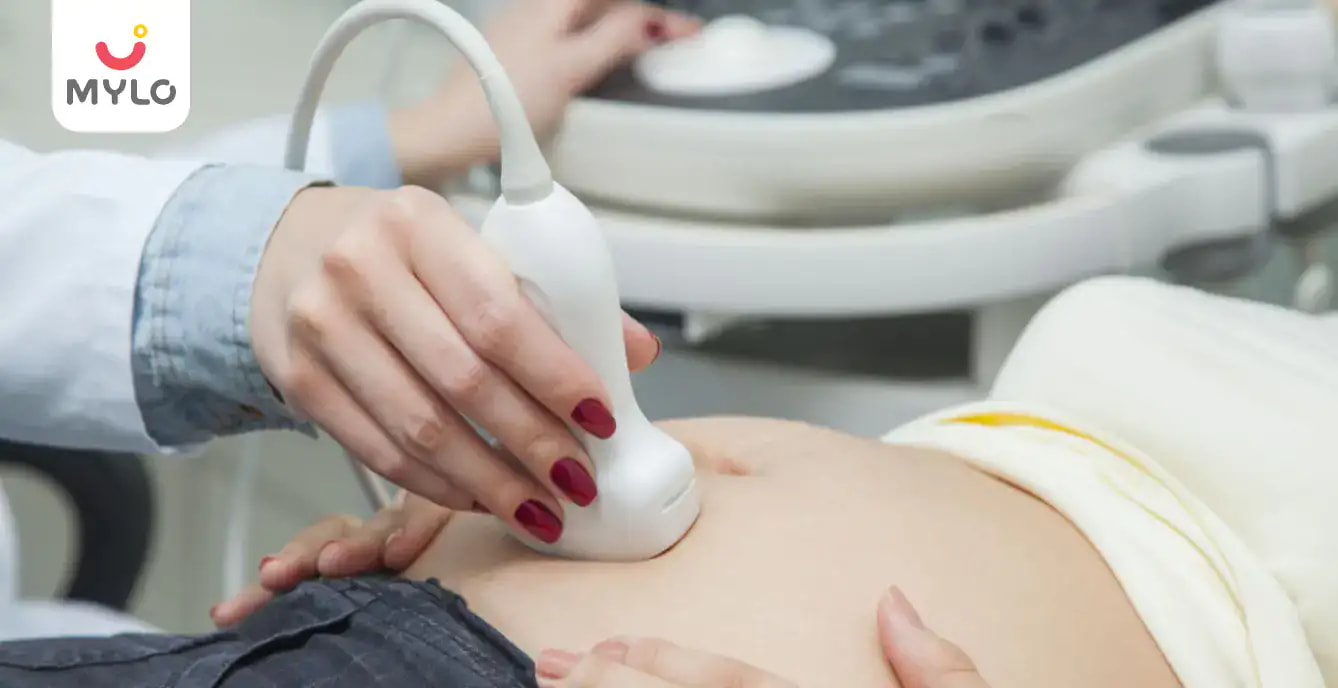Home

Prenatal Tests

What Are the Common Tests You Will Have During Your Pregnancy?
In this Article

Prenatal Tests
What Are the Common Tests You Will Have During Your Pregnancy?
Updated on 14 November 2022
Finally, you are on the stage to welcome your baby. Well, right now, you are a little nervous and excited too since you have been waiting for this moment for a long time. Thus, to ensure everything is well, especially the health of the baby and the mother, doctors perform these basic tests during your pregnancy.
Common Tests Done During Pregnancy
Here we have listed below the most common tests women have to undergo:
1. Fetal Nuchal Translucency (NT)
The nuchal translucency screening test is part of an ultrasound test, which is done to check the back area of the fetal neck for any extra fluid or thickness. This test is usually done during the first trimester. It aims to determine your baby's risk of congenital conditions such as Down Syndrome.
2. Chorionic Villus Sampling (CVS)
CVS involves taking some of the placental tissue to check it for chromosome or genetic problems. It is usually done during weeks 10 and 13 of your pregnancy. The procedure involves inserting a small tube or catheter into your cervix through the vagina. For a transabdominal CVS, the provider puts the needle through your abdomen and into the uterus to collect sample cells from the placenta.
3. Group B Streptococcus Screening
It is a type of bacteria that can occur without generating any negative effects in women's reproductive tract. Studies prove that 30% of healthy women can have this bacterium that does not create any issues. But in some cases, it can lead to serious infection. The testing is simple and involves taking a sample from the vagina.
4. Fetal Heart Rate Test
This test is performed to check your baby's heart rate and rhythm. Your doctor may monitor your baby's heart rate several times throughout the pregnancy but especially during late pregnancy and labor. The average fetal heart rate is between 110-160 beats per minute. An abnormal fetal heart rate may mean that your baby is either not getting enough oxygen or facing some other problems.
5. Non Stress Test (NST)
The non-stress test includes a fetal monitor attached to the mother's abdomen to measure the baby's health and movements. It is called a stress test because it is a way to check the stress in the fetus.
6. Contraction Stress Test (CST)
The contraction stress test is just like NST. This is another way to ensure the baby's heart rate and health. In this baby's heart rate is measured in response to Oxytocin or by stimulation of nipples.
7. Alpha-fetoprotein Screening (AFP)
Alpha-fetoprotein (AFP) screening test is a blood test that measures the level of alpha-fetoprotein during pregnancy. AFP is a type of protein made by the fetal liver and its levels vary throughout the pregnancy. The AFP is present in the amniotic fluid and crosses the placenta and into your blood. Abnormal levels of AFP may indicate open neural defects such as spina bifida, chromosomal problems, twins or wrong due date.
8. Ultrasound Examinations
Apart from Biophysical, ultrasound examinations are also performed in nine months of pregnancy. These ultrasound scans examine fetal growth, check the conditions in-utero and look for anomalies or problems if there are any. Your doctor will also conduct blood tests during the pregnancy for various purposes.
The Bottom Line
We have mentioned the most common tests of pregnancy. The doctor will help you know better what more tests you and your baby require before the delivery. Be sure to ask any questions or doubts you may feel about these tests from your doctor. These tests are safe for you and your baby and are done to ensure that your pregnancy is progressing smoothly.



Written by
Priyanka Verma
Priyanka is an experienced editor & content writer with great attention to detail. Mother to an 11-year-old, she's a ski
Read MoreGet baby's diet chart, and growth tips

Related Articles
RECENTLY PUBLISHED ARTICLES
our most recent articles

Vaginal Discharge
4 week pregnancy discharge
Celebrate Breast Feeding Week
Frequently asked questions about milk production

Maternity Leave
Is Maternity Leave 6 Or 9 Months?

skin care
Top 5 Most Common Skin Care Myths Busted
Fears & Phobias
What are the Top Worries and Fears After Childbirth and How to Overcome Them

Caring for your Newborn
Is It Really Essential for People to Wash Their Hands Before Holding a Newborn?
- Top 10 Hollywood Movies on Hotstar
- How Can You Easily Determine Using Seven Easy Homemade Remedies to Check if You’re Pregnant or Not?
- Best Crime Series On Amazon Prime
- Everything You Need to Know About Linea Nigra, the Line Around Your Belly
- Know Why Your Doctor May Change Your Due Date During Pregnancy
- 6 Ways to Protect Your Baby During Cold Season
- Are You Aware of These Warning Signs That You Should Be Careful of During Your First Trimester?
- Understanding Baby Sleep: 4-6 Months
- How to Take Care of Your Little One When He/She Is Arriving Early? What are Some Causes of Preterm Birth?
- When Should Parents Introduce Water to Their Little Ones? What Should Be the Accurate Quantity and How to Feed Your Baby?
- What to Do if My Toddler is Underweight?
- Toilet Training Your Child
- When Can I Start Giving My Baby Ice Cream?
- Amazing Ways to Help Your Toddler Talk


AWARDS AND RECOGNITION

Mylo wins Forbes D2C Disruptor award

Mylo wins The Economic Times Promising Brands 2022
AS SEEN IN
















- Mylo Care: Effective and science-backed personal care and wellness solutions for a joyful you.
- Mylo Baby: Science-backed, gentle and effective personal care & hygiene range for your little one.
- Mylo Community: Trusted and empathetic community of 10mn+ parents and experts.
Product Categories
baby carrier | baby soap | baby wipes | stretch marks cream | baby cream | baby shampoo | baby massage oil | baby hair oil | stretch marks oil | baby body wash | baby powder | baby lotion | diaper rash cream | newborn diapers | teether | baby kajal | baby diapers | cloth diapers |








